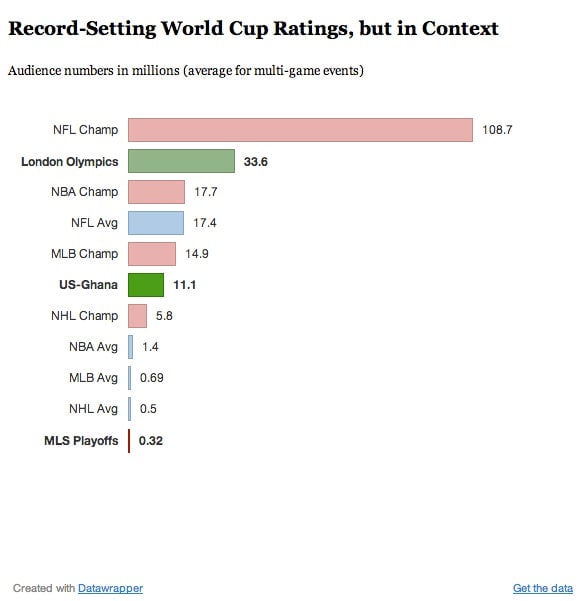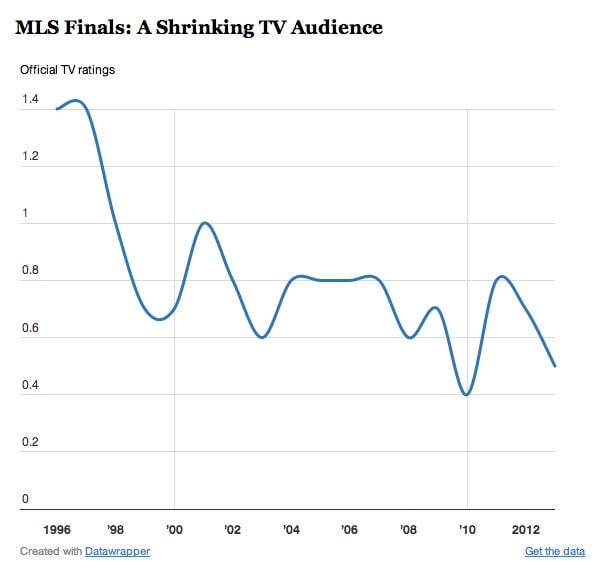Newsflash: America doesn’t really love soccer
The United States’ mostly inspired—and occasionally soul-crushing—group play in the World Cup this year has garnered record-breaking ratings. Our first match, a victory over Ghana, was the most-watched soccer game ever on ESPN. Official ratings for the second match, a brutal tie against Portugal, are still being processed, but they will certainly (and deservedly) be astronomical.


The United States’ mostly inspired—and occasionally soul-crushing—group play in the World Cup this year has garnered record-breaking ratings. Our first match, a victory over Ghana, was the most-watched soccer game ever on ESPN. Official ratings for the second match, a brutal tie against Portugal, are still being processed, but they will certainly (and deservedly) be astronomical.
Does America finally love soccer?
No. Or, more specifically: No, there isn’t yet much evidence that rapt TV audiences from the World Cup will keep watching soccer between quadrennial worldwide championships. Soccer isn’t becoming America’s new baseball. The World Cup is becoming America’s new Summer Olympics.
World Cup ratings have steadily grown since 2006. But to see the US-Ghana game in its proper context, look at average television sports audiences for US championships (RED), US regular seasons (BLUE), and quadrennial worldwide contests (GREEN).

The soccer evangelist says: The World Cup is nearly as popular as the World Series on television. The soccer skeptic says: … and in the 1,400 days between World Cup matches, everybody goes back to not watching soccer on TV.
There is good news for MLS investors and soccer fans. Average stadium attendance is way up in the last few years. Networks are desperate to break out soccer, because the audiences are young, the Hispanic population is growing, and the exclusive rights are dirt cheap compared to the NFL and NBA. But the reality is that nobody is watching American soccer outside the stadium (and few Americans are watching world-class matches in the Premier League on NBC). Here are the ratings for MLS finals in the last two decades. This picture doesn’t really require explanation.

In 2012, 32 million Americans watched Usain Bolt win the 100-meter race. It wasn’t a reflection of racing’s emergence as a major TV destination. It was a reflection that the Summer Olympics are a special glimpse of rare global talent that air when America’s most popular sports, the NFL and NBA, are dormant.
The World Cup is essentially a single-sport Summer Olympics introducing tens of millions of viewers to a thrilling contest in a sport they typically don’t care about. Unfortunately for America’s soccer fans, the vast majority of yesterday’s domestic viewers won’t watch another soccer game between August and 2018.